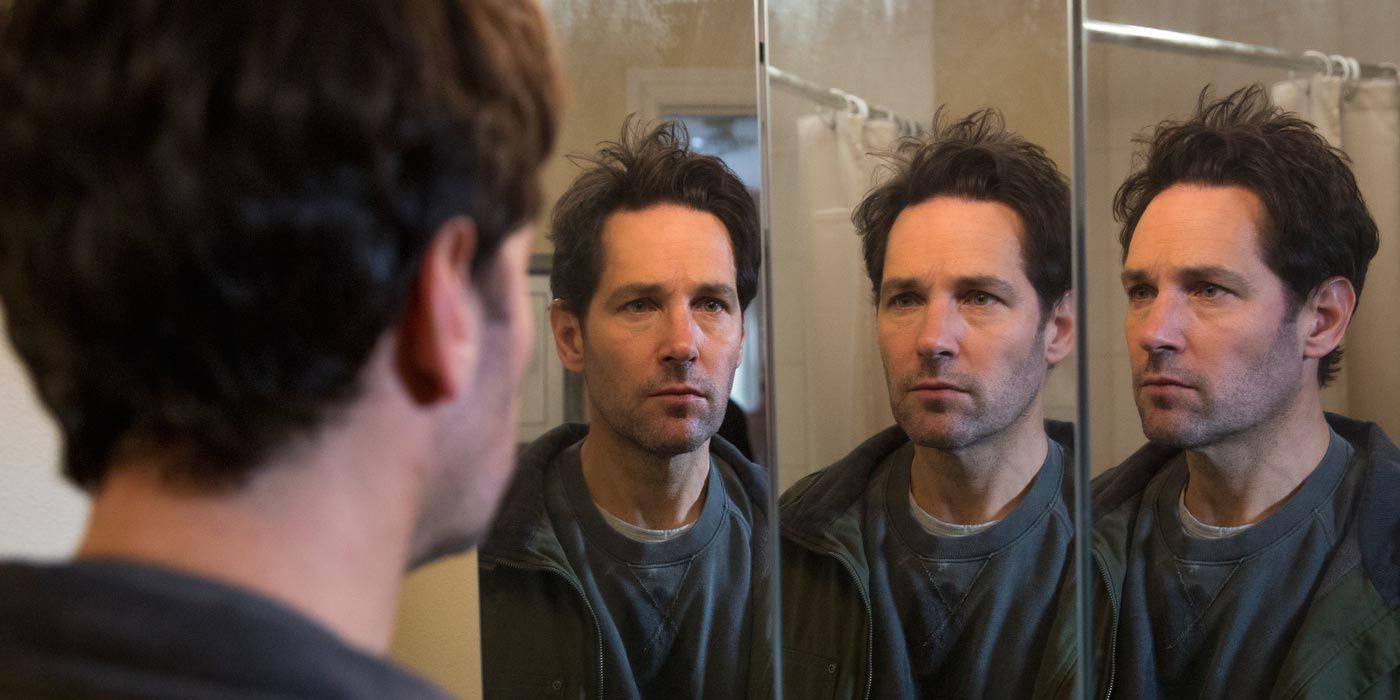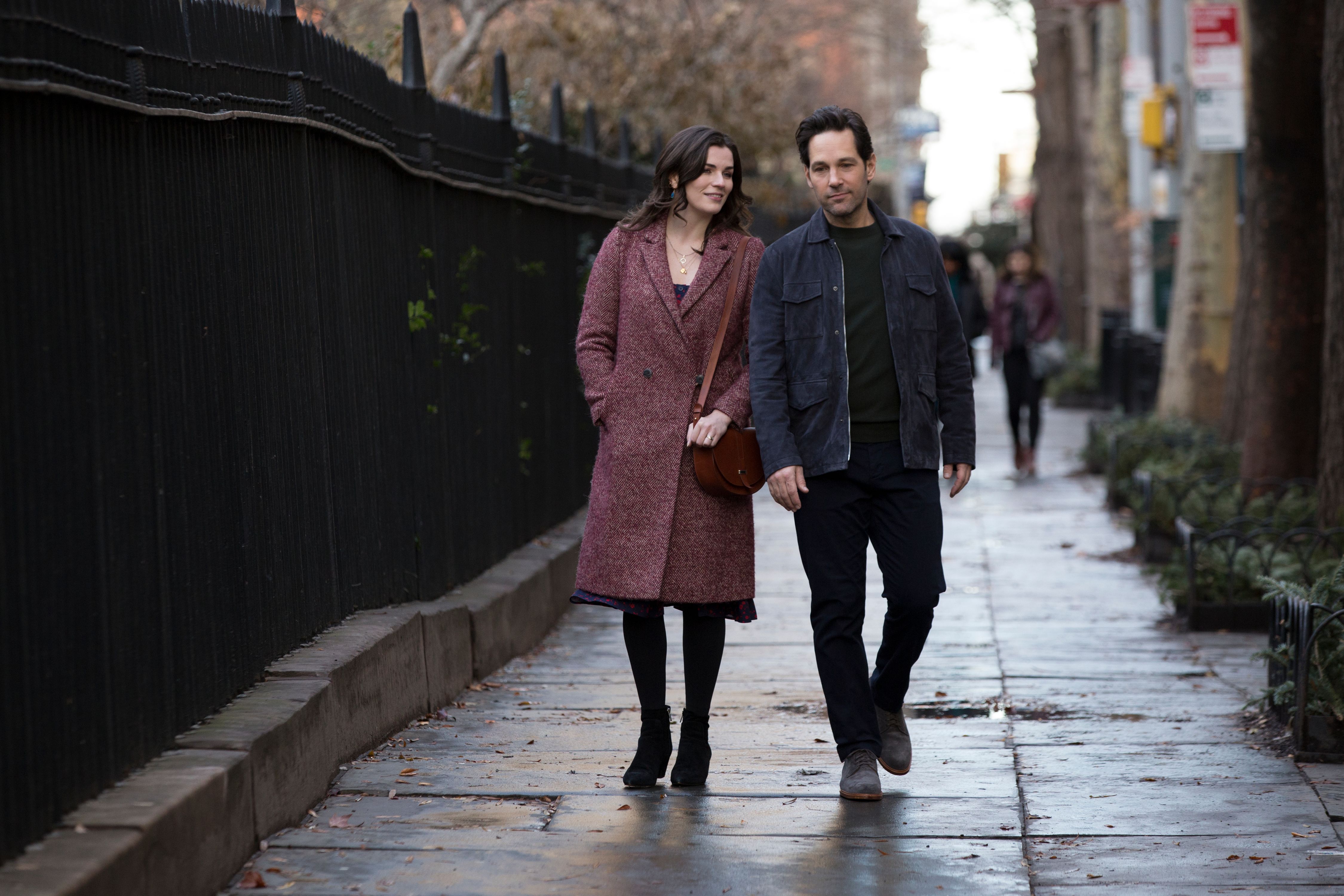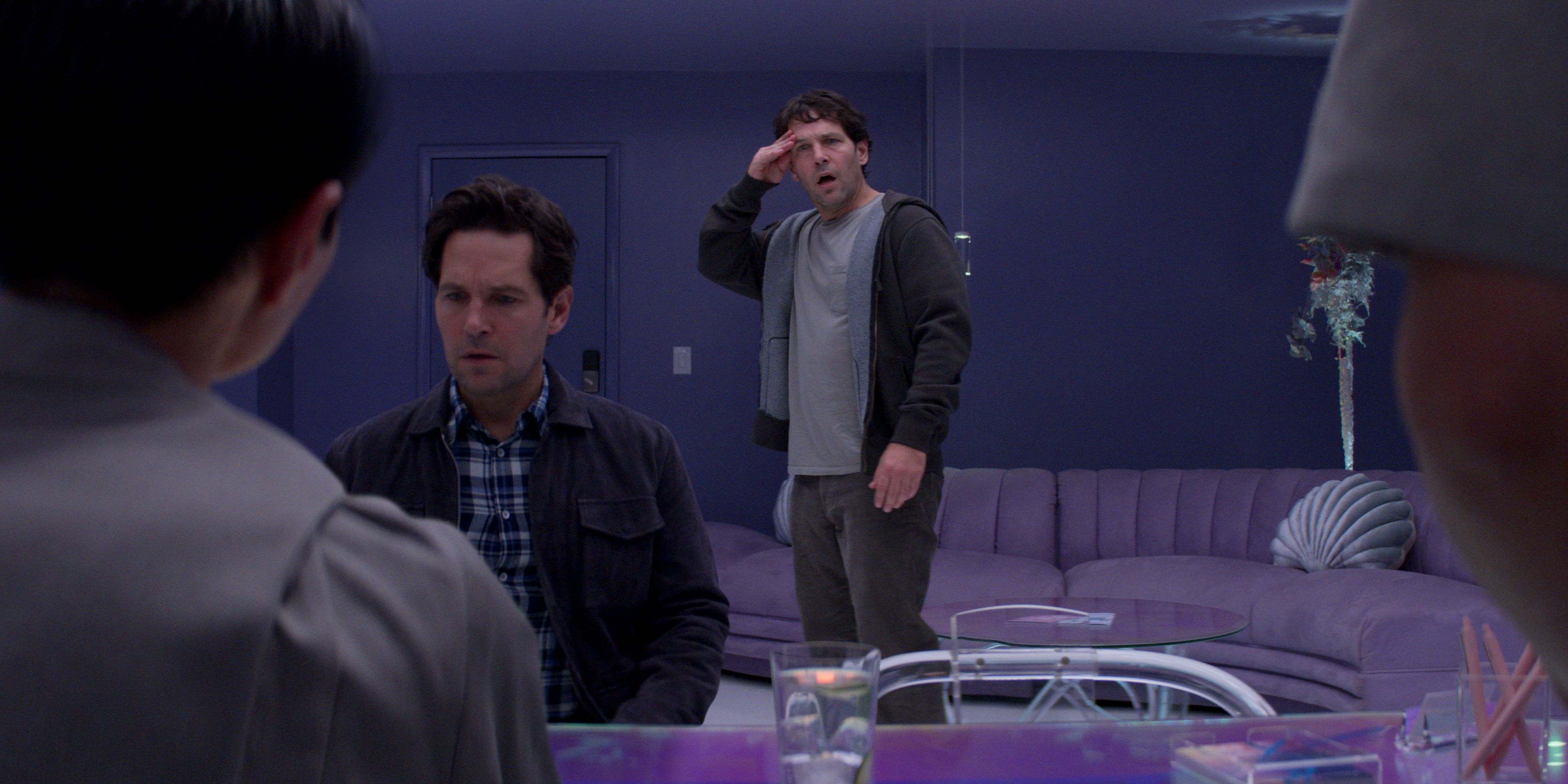Paul Rudd is so great that it's hard to complain about having more of him, and indeed the best thing about the mediocre Netflix sci-fi dramedy Living With Yourself is its double dose of Rudd. Rudd plays middle-aged advertising executive Miles Elliot, who's lost enthusiasm for every aspect of his life, from his soulless job to his passionless marriage to his literally gray suburban home. Seeking a boost, he takes the recommendation of his go-getter co-worker Dan (Desmin Borges) to visit a mysterious spa with supposed miracle treatments (for a heft $50,000). Next thing he knows, he's regaining consciousness in a literal grave, wrapped in plastic and buried somewhere in the woods, left for dead.
That horror-movie image, which opens the first episode, promises a much darker and more disturbing show than actually unfolds, though. The reason that Miles has been buried alive is that the spa's treatment involves creating a fully identical clone with all of the client's memories and a much more positive, enthusiastic attitude toward life. Normally, the original client is then straight-up murdered and buried in the forest, but there was a hitch in the process for Miles. So he soon finds himself face to face with his own doppelganger, and he's much better at living Miles' life than Miles ever was.
The problem is that Miles also wants to continue to live his life. So original Miles and new Miles form a relationship that's half symbiotic and half antagonistic. The original Miles lets the new version take the lead at work, while old Miles gets back to playwriting and attempts to reconnect with his wife Kate (Aisling Bea).
Especially during the early stretches when the Mileses are trying to keep their dual existence a secret, the premise of Living With Yourself resembles a high-concept '90s sitcom, or maybe the 1996 Michael Keaton comedy Multiplicity. But despite the presence of comedy star Rudd and episode lengths that are almost all under 30 minutes, Living With Yourself isn't really a comedy and includes only occasional understated bits of humor.
It's not much of a drama either, though, and it's especially half-baked as a sci-fi series, devoting just enough attention to the central cloning concept to make it clear that it doesn't stand up to any degree of scrutiny. There are some genuinely dark moments, including Miles taking Dan to dig up his own corpse and a pair of government agents capturing Miles to discover the truth about the cloning operation. However, they're all quickly brushed aside in favor of domestic angst or, even worse, dull subplots about the efficacy of Miles' latest advertising campaign at work.
Creator Timothy Greenberg, who wrote all eight episodes, is a veteran Daily Show producer, but there's nothing particularly sharp or satirical about the humor in Living With Yourself (probably the funniest joke involves Enya's "Orinoco Flow" apparently playing on a loop at the sinister spa). The show is best when it's more character-driven, focused on the relationships between the two versions of Miles, or between each Miles and Kate. Alia Shawkat is severely underused in just a couple of episodes as Miles' oddball sister, who takes the entire cloning thing in stride, and adds a welcome layer of snarkiness to what can be a surprisingly dreary show.
Rudd is strong, too, effectively delineating between the two versions of Miles with just slight changes of hairstyle and demeanor. The memes about Rudd's remarkable lack of aging come to mind when watching the fresh-faced new Miles in contrast to the downtrodden original, who looks like Rudd saved up all the aging he's been avoiding and channeled it into one character.
It's clear that neither version of Miles is actually better, and while the clone may be more successful at the office and more fun at parties, he can also be insufferably smug and overbearing. The best version, of course, would be somewhere in the middle, which is a fairly obvious lesson to take eight episodes to deliver.
Like too many streaming series, Living With Yourself would probably have worked much better as a feature film. Directors Jonathan Dayton and Valerie Faris, who helmed every episode, could have molded it into something like their quirky dramedies Little Miss Sunshine or Ruby Sparks. Instead, there are whole episodes that feel entirely extraneous, and the show frequently doubles back on events to show them from a different perspective (generally just one Miles or the other), without any particular new insight.
Dayton and Faris mostly keep the style grounded, but the show doesn't even have the kaleidoscopic visuals that Cary Joji Fukunaga brought to Maniac, another high-concept Netflix sci-fi series that turned out to be disappointingly mundane at its core. There's so much unexplored potential in Living With Yourself that it's hard not to be at least a little curious about what comes next, all the way through to the season's somewhat anticlimactic end.
Rudd remains one of the most likable, endearing actors around, whether as Ant-Man in the Marvel Cinematic Universe or in the surreal world of Wet Hot American Summer, and even when one version of Miles or another is being kind of insensitive and unpleasant, it's easy to root for him to succeed. The doubling effects are smooth and unobtrusive, even when the characters interact directly, and Rudd has solid chemistry with Bea as both variations of Miles. The ingredients are there, but the show never successfully puts them together. Maybe it needs to be cloned and refreshed, with the original version tossed in a ditch somewhere.
Starring Paul Rudd and Aisling Bea, the eight-episode first season of Living With Yourself premieres Friday on Netflix.



